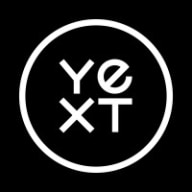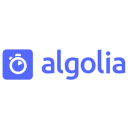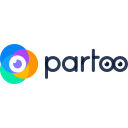Yext vs Semrush: Which tool delivers better value for digital marketing?
- 01Yext vs Semrush: overview
- 02What's the difference between Yext and Semrush?
- 03Yext pros and cons
- 04Semrush pros and cons
- 05Yext compared to Semrush
- 06Semrush compared to Yext
- 07Features comparison
- 08Yext vs Semrush: Which is the best for your business?
- 09Promotions on Customer Support software
- 10Alternatives to Yext & Semrush
Access up to $35,000 savings on Yext & $59 on Semrush
Yext
$35,000 credits
Access up to $35,000 savings on Yext & $59 on Semrush
Effective search engine optimization (SEO) and digital presence management are crucial for enhancing online visibility, attracting more traffic, and improving engagement. The solution? Robust digital marketing tools like Yext and Semrush. These platforms offer a variety of features that help businesses manage their online footprint from SEO to local listing management.
However, with many options available, it can be challenging to determine which tool best suits your digital strategy needs. In this article, we aim to streamline your decision-making process by comparing two popular solutions—Yext and Semrush*. By diving into their key features, pricing structures, and distinct differences, you'll gain a clear understanding to confidently decide which platform is more aligned with your goals for managing and optimizing your digital presence.
*When you purchase through links on our website/article, we may earn an affiliate commission from Semrush
Yext vs Semrush: overview
Yext and Semrush are leading contenders in the realm of digital marketing tools and SEO software, each bringing unique features and advantages tailored to varying business needs.
Yext is renowned for its robust local listing management and data integration capabilities. It provides a comprehensive platform for businesses to manage their online presence across numerous directories, ensuring consistency and accuracy in their data. On the other hand, Semrush is celebrated for its extensive SEO and marketing analytics tools. It offers a versatile platform that allows users to conduct in-depth keyword research, track search engine rankings, and analyze competitive data to optimize their digital marketing strategies.
Now, let's dive into the Yext vs. Semrush comparison to help you make an informed decision when selecting the right digital marketing tool for your specific requirements.
What's the difference between Yext and Semrush?
Yext and Semrush are both digital marketing tools designed to enhance online presence and SEO, but they focus on distinctly different aspects of this domain. Both platforms include robust features to improve visibility and manage digital data, yet the nuances in their offerings could be pivotal in choosing the most suitable tool for your needs.
One of the main differences between Yext and Semrush is their core functionalities. Yext specializes in online brand management, particularly in local search optimization and the management of business listings across multiple directories. It provides a centralized platform to control how business information appears on various external sites, ensuring accuracy and consistency. This is crucial for businesses that rely heavily on local search visibility and reputation management.
On the other hand, Semrush excels in broader SEO and digital marketing strategies. It offers comprehensive tools for keyword research, SEO audits, competitor analysis, and content marketing. Semrush helps businesses enhance their organic search rankings and monitor their digital marketing performance extensively, making it ideal for those looking to deepen their market penetration and understand competitive landscapes.
The approach to analytics and reporting also differs significantly between Yext and Semrush. Yext provides detailed reports on how business listings perform across platforms, focusing on metrics like search impressions and customer actions (e.g., calls made from a listing). In contrast, Semrush provides a wide array of analytics related to SEO performance, including site health, backlink analysis, and ranking changes over time, which are essential for dynamic SEO strategies.
Additionally, the pricing models of Yext and Semrush reflect their functionalities. Yext operates on a subscription model that varies based on the number of locations and features required, making it potentially expensive for businesses with multiple outlets. Semrush, while also subscription-based, offers tiered plans that scale based on feature access and usage limits, catering to businesses of different sizes and with varying SEO needs.

$35,000 credits on Yext
Get $35,000 credits on Yext and up to $35,000 savings with Secret.
Yext pros and cons
What are the advantages of Yext?
- Centralized listings management: Yext offers a centralized dashboard that allows businesses to manage their listings across a vast network of directories, websites, and apps from a single interface. This makes it easier to ensure information consistency and accuracy across all platforms.
- Real-time updates: Yext allows businesses to update their information in real-time. Changes made in the Yext dashboard propagate immediately to all connected platforms, ensuring that customers always have access to the most current information.
- Review monitoring and response: Yext provides tools for monitoring and responding to customer reviews across various platforms. This can help businesses maintain a positive online reputation and engage directly with customers.
- Analytics and reporting: The platform offers detailed analytics and reporting features that give insights into how business listings are performing. Businesses can track metrics like search impressions, profile views, and customer actions, enabling them to adjust their strategies effectively.
- Integrations with major platforms: Yext has partnerships with major search engines, social networks, and app directories, ensuring broad visibility for business listings. This includes Google, Facebook, Amazon Alexa, Apple Maps, Bing, and others.
What are the disadvantages of Yext?
- Cost: Yext can be expensive, especially for small businesses or those with multiple locations. The cost can increase significantly as additional features and locations are added.
- Dependency on subscription: Once you stop subscribing to Yext, any listings they don't have permanent claims on typically revert to their previous state, which can lead to inconsistencies and outdated information if not managed carefully.
- Limited control over third-party sites: While Yext distributes information to many sites, businesses have limited control over these third-party platforms beyond the updates they provide through Yext.
- Complexity for smaller needs: For businesses that only need to manage a few listings or that do not require frequent updates, Yext may offer more functionality than needed, making it less cost-effective.
- SEO limitations: Yext focuses primarily on listings management and may not offer the comprehensive SEO tools and tactics that businesses looking to deeply optimize their search engine presence might need. For more in-depth SEO features, other platforms might be more appropriate.
Compare Yext to other tools
Semrush pros and cons
What are the advantages of Semrush?
- Comprehensive SEO toolkit: Semrush offers an extensive array of SEO tools, including keyword research, site audits, competitor analysis, backlink tracking, and more. This makes it an all-in-one solution for businesses looking to improve their search engine optimization and online visibility.
- Competitive intelligence: Semrush excels in providing detailed insights into competitors’ strategies. This includes data on competitors’ keyword strategies, advertising approaches, content distribution, and their search engine ranking. This allows users to benchmark their performance against competitors and refine their strategies.
- Content marketing tools: Semrush offers tools specifically for content marketers, such as the Content Audit tool, SEO Writing Assistant, and the Brand Monitoring tool, which help in optimizing content for search engines and tracking brand mentions across the web.
- Regular updates and new features: Semrush frequently updates its tools and adds new features based on the latest SEO trends and user feedback. This continuous improvement helps businesses stay ahead of the curve in their digital marketing efforts.
- Educational resources and community: Semrush provides extensive educational resources, including a comprehensive blog, webinars, and the Semrush Academy, which offers free courses and certifications. This can be particularly beneficial for beginners and those looking to advance their digital marketing knowledge.
What are the disadvantages of Semrush?
- Cost: Semrush can be quite expensive, especially for small businesses or individual users. The more advanced features are locked behind higher-tier plans, which may not be affordable for everyone.
- Complexity: Due to its extensive feature set, Semrush can be overwhelming for beginners or those not familiar with digital marketing tools. There is a learning curve involved in utilizing its full potential.
- Data overload: With the vast amount of data that Semrush provides, users can sometimes find it challenging to discern what data is most relevant to their specific needs, leading to information overload.
- Inconsistencies in data: Some users have reported inconsistencies in data, especially in keyword volumes and rankings. While this is a common issue among SEO tools due to the dynamic nature of search engines, it’s something to be mindful of.
- Limited local SEO features: While Semrush does offer some local SEO tools, they are not as comprehensive as those of some other platforms that specialize in local SEO. For businesses focusing primarily on local search, another tool might be more appropriate.
Compare Semrush to other tools
Yext compared to Semrush
Yext and Semrush cater to different aspects of digital marketing, each with unique strengths. Yext is specialized in managing online business listings and ensuring data consistency across platforms to enhance local search visibility. It's ideal for businesses focused on maintaining a robust local online presence.
In contrast, Semrush offers a comprehensive suite of tools for SEO, including keyword research, competitive analysis, and content marketing. This makes it suitable for businesses aiming to improve their overall search engine optimization and digital marketing strategy. While Yext streamlines directory management, Semrush provides broader insights into SEO performance, making them valuable in varied contexts.
Is Yext better than Semrush?
Deciding whether Yext is better than Semrush hinges on your specific business needs. If the primary goal is to streamline and manage local listings efficiently to boost local SEO, then Yext's specialized services are unparalleled.
However, if you're seeking a broader range of digital marketing tools to drive SEO across multiple levels—encompassing everything from technical audits to strategy overhauls—Semrush is the superior choice. The decision between Yext and Semrush should thus be based on whether the priority lies in enhancing local search visibility specifically or in embracing a comprehensive approach to search engine optimization and broader digital marketing tactics.
What is Yext best used for?
Yext is best utilized for managing and synchronizing business listings across a wide array of online directories, search engines, and maps. Its platform excels in ensuring that all business information is consistent and accurate, thereby enhancing local search visibility and reputation.
Ideal for businesses with multiple locations, Yext helps streamline the process of updating essential details like addresses, hours, and services across all platforms in real-time. Additionally, it offers tools for monitoring and responding to customer reviews and provides analytics to gauge the performance of listings, making it an invaluable tool for businesses prioritizing local SEO and customer engagement.
Can Yext replace Semrush?
Yext cannot fully replace Semrush as they serve different purposes in the digital marketing ecosystem. Yext specializes in managing online business listings and ensuring information consistency across directories, which is crucial for local SEO and reputation management. Semrush, on the other hand, provides a comprehensive suite of SEO tools including keyword research, site audits, competitor analysis, and content marketing strategies.
While Yext focuses on enhancing local search presence and accuracy of business information, Semrush offers broad capabilities for improving overall search engine optimization and digital marketing effectiveness. Both tools complement each other but cater to distinct aspects of online visibility and marketing.
Is Yext cheaper than Semrush?
Determining whether Yext is cheaper than Semrush depends on the specific needs and scale of a business. Yext’s pricing primarily revolves around the number of locations and the extent of directory coverage required, potentially making it expensive for businesses with multiple outlets. Semrush, meanwhile, offers tiered subscription plans that include a wide range of SEO tools and features.
For a business focusing solely on local directory management, Yext might be more cost-effective, whereas for comprehensive digital marketing and SEO efforts across various channels, Semrush could offer greater value despite its cost due to its extensive functionalities and tools.
Is there a better Customer Support software than Yext?
Whether there's a "better" software than Yext depends largely on your specific needs for managing your online business presence. Yext is highly effective for centralized management of local listings across numerous platforms, ensuring data accuracy and consistency, which is crucial for businesses with multiple locations.
However, alternatives to Yext like Moz Local, BrightLocal, and Whitespark might better suit certain organizations. Moz Local excels with its integration capabilities and SEO focus, while BrightLocal offers detailed reporting and a more localized SEO toolkit. Whitespark is renowned for its specialized local citation services. The determination of the "better" software hinges on your unique requirements for local SEO, budget, and the specific features you value most for managing and optimizing your online presence.
$35,000 credits on Yext
Get $35,000 credits on Yext and up to $35,000 savings with Secret.
Semrush compared to Yext
Semrush and Yext serve different but complementary aspects of digital marketing. Semrush is a comprehensive SEO and digital marketing platform designed to enhance overall online visibility through keyword research, competitor analysis, site audits, and more. It offers tools for deep SEO strategy development, content marketing optimization, and performance tracking.
Yext, on the other hand, focuses on managing online business listings to ensure accuracy across multiple platforms, crucial for boosting local SEO and maintaining a unified brand presence. While Yext optimizes local discovery and reputation, Semrush provides broader insights into market trends and website optimization, making them suitable for distinct yet integral marketing functions.
Is Semrush better than Yext?
Determining if Semrush is better than Yext depends greatly on what marketing objectives you prioritize. Semrush excels as a comprehensive tool for those looking to significantly enhance their SEO efforts and develop a deep, multifaceted digital marketing strategy. It is particularly advantageous for businesses that require thorough market analysis, detailed competitor insights, and extensive content marketing strategies.
If your focus is on mastering SEO to climb search rankings globally and regionally, Semrush offers a more robust framework than Yext. It's the preferred choice for those needing an all-encompassing solution rather than specific local listing management offered by Yext.
What is Semrush best used for?
Semrush is best used for comprehensive search engine optimization (SEO) and digital marketing analysis. It excels in offering tools for keyword research, tracking search rankings, conducting SEO audits, and analyzing competitors' strategies. Semrush helps businesses identify opportunities for improving their website's visibility in search results and provides actionable insights into content strategy and backlink building.
Additionally, it includes features for social media monitoring and paid advertising analysis, making it a versatile tool for marketers aiming to optimize their online presence across multiple channels. This breadth of capabilities makes Semrush particularly valuable for those looking to enhance their digital marketing efforts systematically and strategically.
Can Semrush replace Yext?
Semrush cannot directly replace Yext as they target different aspects of digital marketing. Semrush focuses extensively on search engine optimization, providing tools for keyword research, competitor analysis, and SEO audits, which are essential for improving a website's search engine rankings and online marketing strategy. On the other hand, Yext specializes in managing and syncing business listings across various online platforms to ensure data consistency and enhance local SEO.
While Semrush helps in broad digital strategy and online presence optimization, Yext is crucial for specific local directory management and accuracy. Businesses often benefit from using both, depending on their goals for global and local market engagement.
Is Semrush cheaper than Yext?
Comparing the cost of Semrush to Yext depends on your specific marketing needs and the scale of operations. Semrush offers several plans tailored to different levels of SEO and digital marketing requirements, from basic to advanced, which might make it appear more flexible in pricing.
Yext, however, focuses on local listing management and charges based on the number of locations managed, which can quickly increase costs for businesses with multiple outlets. For a company primarily focused on extensive SEO capabilities and broad digital marketing strategies, Semrush’s pricing plans could offer more value for money. In contrast, Yext may be essential but potentially pricier for those prioritizing local search optimization.
Is there a better SEO software than Semrush?
Determining whether there's a superior software to Semrush depends on your specific digital marketing and SEO needs. Various alternatives cater to different aspects of online marketing.
Alternatives to Semrush include Ahrefs, Moz, and Majestic, each offering distinctive features. For example, Ahrefs is highly regarded for its backlink analysis and content exploration tools, while Moz provides robust local SEO capabilities and a user-friendly interface. The choice of the best software depends on your specific goals, budget, and the particular aspects of SEO and digital marketing you wish to focus on.
14 days free on the Pro plan + 17% off annual plans on Semrush
Get 14 days free on the Pro plan + 17% off annual plans on Semrush and up to $59 savings with Secret.
Features comparison
Semrush Excels Over Yext in Content Creation and SEO Optimization
Semrush excels in enhancing content creation and optimization, tailoring strategies specifically to capture the interests of target audiences. This platform stands out by offering comprehensive recommendations on content topics, coupled with detailed SEO suggestions to enhance visibility and engagement. For instance, Semrush’s Topic Research tool generates content ideas based on trending topics and frequently asked questions within a specific industry, which can then be optimized using its SEO Content Template to align with best SEO practices.
Conversely, Yext primarily focuses on optimizing search visibility through local listing management and does not provide the advanced content targeting and optimization features that Semrush does. This makes Semrush the superior choice for marketers looking to strategically elevate their content based on audience insights and search engine criteria.
Yext Outshines SEMrush in User-Friendliness for Digital Marketing Tools
Yext and SEMrush both offer robust solutions to boost online visibility, but when it comes to ease of use, Yext clearly takes the lead. Yext’s interface is notably user-friendly, characterized by a clean layout and intuitive navigation that allows even beginners to efficiently manage their online listings and reputation. The platform supports users with detailed, easy-to-follow onboarding tutorials that simplify complex operations.
In contrast, SEMrush, while powerful in its SEO and digital marketing capabilities, presents a more daunting interface for newcomers. Its comprehensive features, including keyword research, SEO audits, and competitive analysis, necessitate a more substantial investment in learning how to use the platform effectively. This makes Yext the preferred option for those seeking simplicity and ease of use in managing their digital presence.
Yext Excels in Consistency of Business Information Across Platforms Compared to Semrush
One of Yext's most notable features is its robust commitment to ensuring the consistency of your business details across a myriad of platforms, a crucial factor in maintaining brand credibility and avoiding customer confusion. Yext automatically updates and synchronizes business information—such as addresses, phone numbers, and operating hours—across all connected directories and websites, ensuring uniformity. This prevents discrepancies that can negatively impact customer trust and search engine rankings.
On the other hand, while Semrush excels as a digital marketing tool, offering extensive capabilities in SEO, content marketing, and competitive analysis, it lacks a specialized feature for managing business information across various platforms. For businesses that prioritize the integrity of their brand across multiple customer touchpoints, Yext provides a targeted solution that Semrush does not directly address.
Yext and Semrush Provide Equally Powerful but Distinct Analytics Insights
Both Yext and Semrush are equipped with robust analytics tools, each delivering valuable insights tailored to different aspects of digital marketing. Yext excels in providing detailed analytics related to how customers find and interact with your brand across online listings. It tracks metrics such as search queries and click-through rates on directories, which helps businesses understand their visibility on platforms like Google Maps and Yelp. Conversely, Semrush offers in-depth website analytics that delve into user behavior on your website, using data to refine SEO strategies and enhance overall user experience.
For example, Semrush's analytics can show which content performs best in terms of traffic and conversions, guiding content creation and optimization. While both tools offer exceptional analytics capabilities, they serve unique purposes—Yext focuses on external engagement with your listings, while Semrush concentrates on internal site dynamics and performance.
Semrush Leads Yext in Ad Campaign Management for Enhanced Marketing Efficiency
Semrush stands out in the digital marketing landscape, particularly in ad campaign management where it excels at maximizing conversions and minimizing costs. The platform offers a suite of tools tailored for advertising strategies, such as the PPC Keyword Tool, which helps advertisers find cost-effective keywords, and Audience Insights, which deepens understanding of target demographics to refine ad targeting. These features collectively enhance the precision and efficiency of ad campaigns, driving better ROI.
In contrast, while Yext provides powerful tools for local listing management and ensuring brand consistency across platforms, it does not focus as extensively on the nuances of ad campaign optimization and management like Semrush does. For marketers dedicated to optimizing paid search and advertising strategies, Semrush delivers specialized capabilities that Yext does not, making it the preferred choice for advertising-focused digital marketing.
SEMrush Surpasses Yext in Integration Capabilities for Enhanced Digital Marketing
While both Yext and SEMrush excel in their respective areas of digital marketing, SEMrush distinctly outperforms Yext in terms of integration capabilities. SEMrush offers robust integration with a broad array of third-party applications, including essential tools like Google Analytics, Google Search Console, and various social media platforms. This extensive integration allows users to gather and centralize data from multiple sources, providing a comprehensive overview of their marketing efforts. For instance, a marketer can pull in-depth SEO analytics from SEMrush into Google Sheets or export keyword performance data to enhance reporting accuracy.
In contrast, Yext focuses more narrowly on improving directory listing management and integrates primarily with listing directories rather than providing the extensive cross-platform functionality that SEMrush does. Thus, for businesses looking for a tool that offers wide-ranging integration to streamline and amplify their digital marketing data analysis, SEMrush is the superior choice.
Yext Outperforms Semrush in Comprehensive Reputation Management
Yext stands out in the field of reputation management by offering a sophisticated and centralized dashboard that consolidates customer feedback from a multitude of online platforms. This integration enables businesses to monitor, respond, and interact with customer reviews efficiently, fostering proactive engagement and brand loyalty. For instance, Yext facilitates the immediate updating and resolution of customer concerns across various channels like Google My Business and Yelp, ensuring that businesses maintain a positive public image.
While Semrush also tracks brand mentions and provides insights into online visibility, it primarily focuses on the broader scope of SEO and lacks the specialized tools that Yext offers for direct feedback management and customer interactions. Consequently, for organizations that prioritize direct engagement with customer sentiments and want to actively manage their online reputation, Yext provides a more tailored and effective solution.
Subscribe to our newsletters.
No FOMO here. Stay up-to-date on all the latest deals and news with our monthly newsletter straight to your inbox like 112,000+ entrepreneurs (+ Get 10% off on on our Premium Membership!)
Yext vs Semrush: Which is the best for your business?
Yext is the best tool for you if:
- You prioritize accurate and consistent business listings across a wide range of directories and platforms to enhance your local search visibility and reputation.
- Managing customer reviews efficiently and effectively from a centralized dashboard is crucial for your business, enabling prompt responses and active reputation management.
- You require detailed analytics on how customers interact with your listings, including tracking search queries, profile views, and customer actions to refine your marketing strategies.
- Your business has multiple locations, and you need to update your operational information, like hours and services, across all listings quickly and simultaneously.
- Integration with major platforms such as Google, Facebook, and Amazon Alexa is essential for you, ensuring that your business information is uniformly presented everywhere.
Semrush is the best tool for you if:
- You need comprehensive SEO tools including keyword research, competitive analysis, and site audits to optimize your website's search engine rankings and online visibility.
- Your marketing strategy demands detailed insights into competitors' tactics, enabling you to benchmark your performance and adjust your strategies for maximum effectiveness.
- Content creation is central to your marketing efforts, and you value tools for content optimization and suggestion to improve engagement and search relevance.
- You manage extensive ad campaigns and require sophisticated tools for ad optimization, budget management, and audience targeting to maximize your return on investment.
- Regular updates and new features aligned with the latest digital marketing trends are important to you, ensuring you stay ahead in a rapidly evolving industry.

$35,000 credits on Yext
Get $35,000 credits on Yext and up to $35,000 savings with Secret.
Alternatives to Yext & Semrush
Promotions on Customer Support software
Start saving on the best SaaS with Secret.
Secret has already helped tens of thousands of startups save millions on the best SaaS like Yext, Semrush & many more. Join Secret now to buy software the smart way.


















